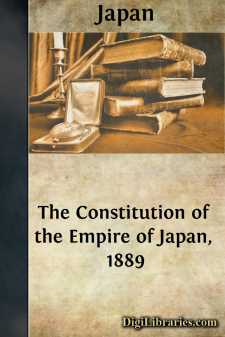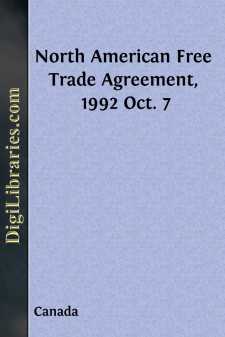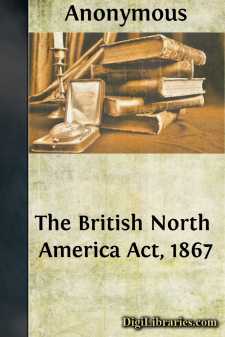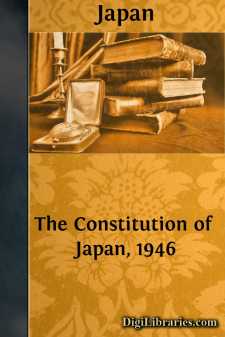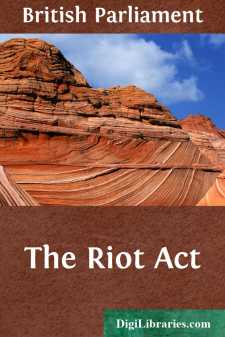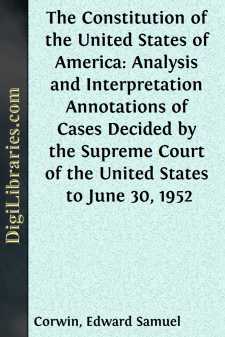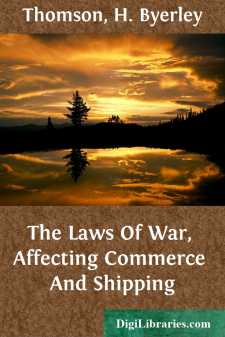Law
- Commercial 1
- Common 1
- Computer & Internet 1
- Constitutional 4
- Courts 3
- General 3
- International 1
- Military 1
- Natural Law 1
- Property 1
Law Books
Sort by:
by:
Japan
CHAPTER I. THE EMPEROR Article 1. The Empire of Japan shall be reigned over andgoverned by a line of Emperors unbroken for ages eternal. Article 2. The Imperial Throne shall be succeeded to byImperial male descendants, according to the provisions of theImperial House Law. Article 3. The Emperor is sacred and inviolable. Article 4. The Emperor is the head of the Empire, combining in...
more...
by:
Canada
1. The Schedule of a Party sets out the reservations taken by that Party, pursuant to Articles 1108(1) and 1206(2), with respect to existing, non-conforming measures that derogate from an obligation relating to: (a) national treatment, pursuant to Article 1102 (Investment) or 1202 (Services); (b) most-favored-nation treatment, pursuant to Article 1103 (Investment) or 1203...
more...
by:
Anonymous
I.—PRELIMINARY. 1. [Short Title.] This Act may be cited as The British North America Act, 1867. 2. [Application of Provisions referring to the Queen.] The Provisions of this Act referring to Her Majesty the Queen extend also to the Heirs and Successors of Her Majesty, Kings and Queens of the United Kingdom of Great Britain and Ireland. 3. [Declaration of Union] It shall be lawful for the Queen, by...
more...
by:
Japan
CHAPTER I. THE EMPEROR Article 1. The Emperor shall be the symbol of the State and of the unity of the people, deriving his position from the will of the people with whom resides sovereign power. Article 2. The Imperial Throne shall be dynastic and succeeded to in accordance with the Imperial House law passed by the Diet. Article 3. The advice and approval of the Cabinet shall be required for all acts...
more...
CAP. V. An act for preventing tumults and riotous assemblies, and for the more speedy and effectual punishing the rioters.I.Whereas of late many rebellious riots and tumults have been in divers parts of this kingdom, to the disturbance of the publick peace, and the endangering of his Majesty's person and government, and the same are yet continued and fomented by persons disaffected to his Majesty,...
more...
by:
Thornton Hall
CHAPTER I "It was to a noise like thunder, and close clasped in a soldier's embrace, that Catherine I. made her first appearance in Russian history." History, indeed, contains few chapters more strange, more seemingly impossible, than this which tells the story of the maid-of-all-work—the red-armed, illiterate peasant-girl who, without any dower of beauty or charm, won the idolatry of an...
more...
1. Preliminary Statement This case challenges an act of Congress that makes the use of filtering software by public libraries a condition of the receipt of federal funding. The Internet, as is well known, is a vast, interactive medium based on a decentralized network of computers around the world. Its most familiar feature is the World Wide Web (the "Web"), a network of computers known as...
more...
by:
Anonymous
INTRODUCTION The legal history of Rome begins properly with the Twelve Tables. It is strictly the first and the only Roman code,[1] collecting the earliest known laws of the Roman people and forming the foundation of the whole fabric of Roman Law. Its importance lies in the fact that by its promulgation was substituted for an unwritten usage, of which the knowledge had been confined to some citizens of...
more...
INTRODUCTION It is my purpose in this Introduction to the Constitution of the United States, Annotated to sketch rapidly certain outstanding phases of the Supreme Court's interpretation of the Constitution for the illustration they may afford of the interests, ideas, and contingencies which have from time to time influenced the Court in this still supremely important area of its powers and of the...
more...
INTRODUCTION TO PART I. It would be superfluous to trouble my readers, in a concise practical treatise, with any theoretical discussion on the origin of the Law of Nations, had not questions of late been often asked, respecting the means of accommodating rules decided nearly half-a-century ago, to those larger views of international duty and universal humanity, that have been the natural result of a...
more...


